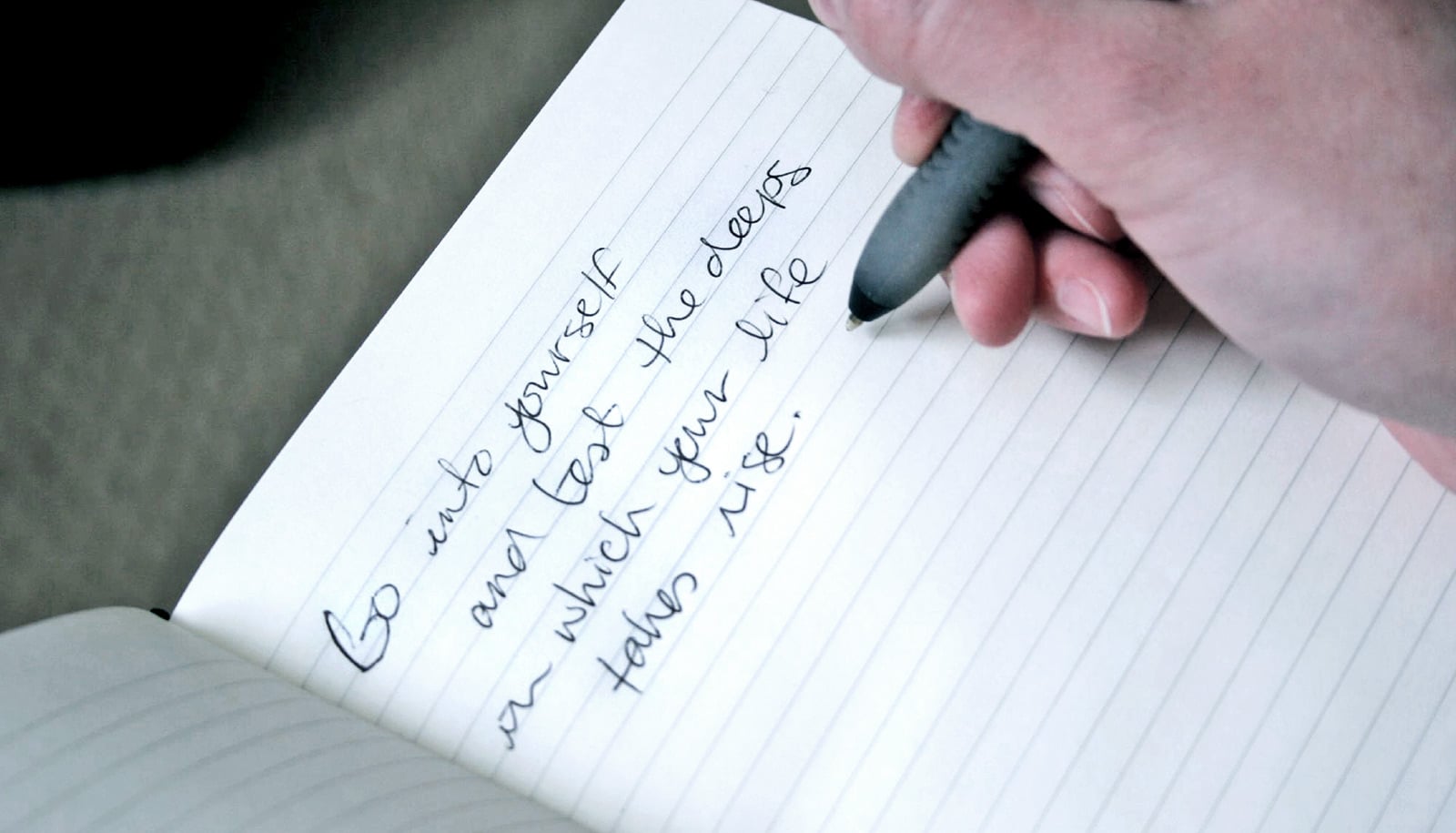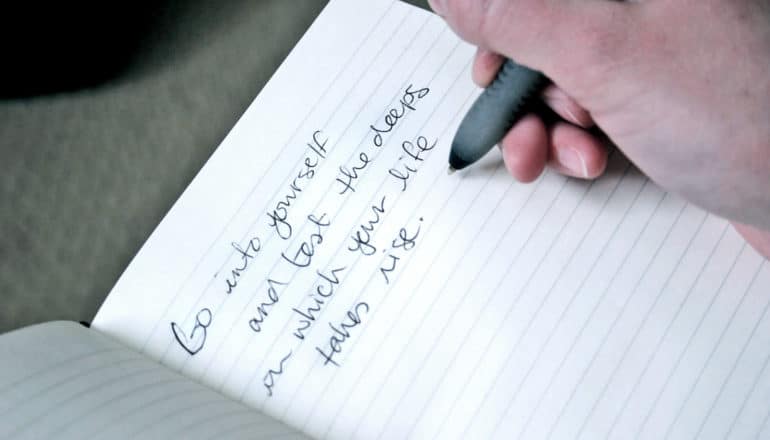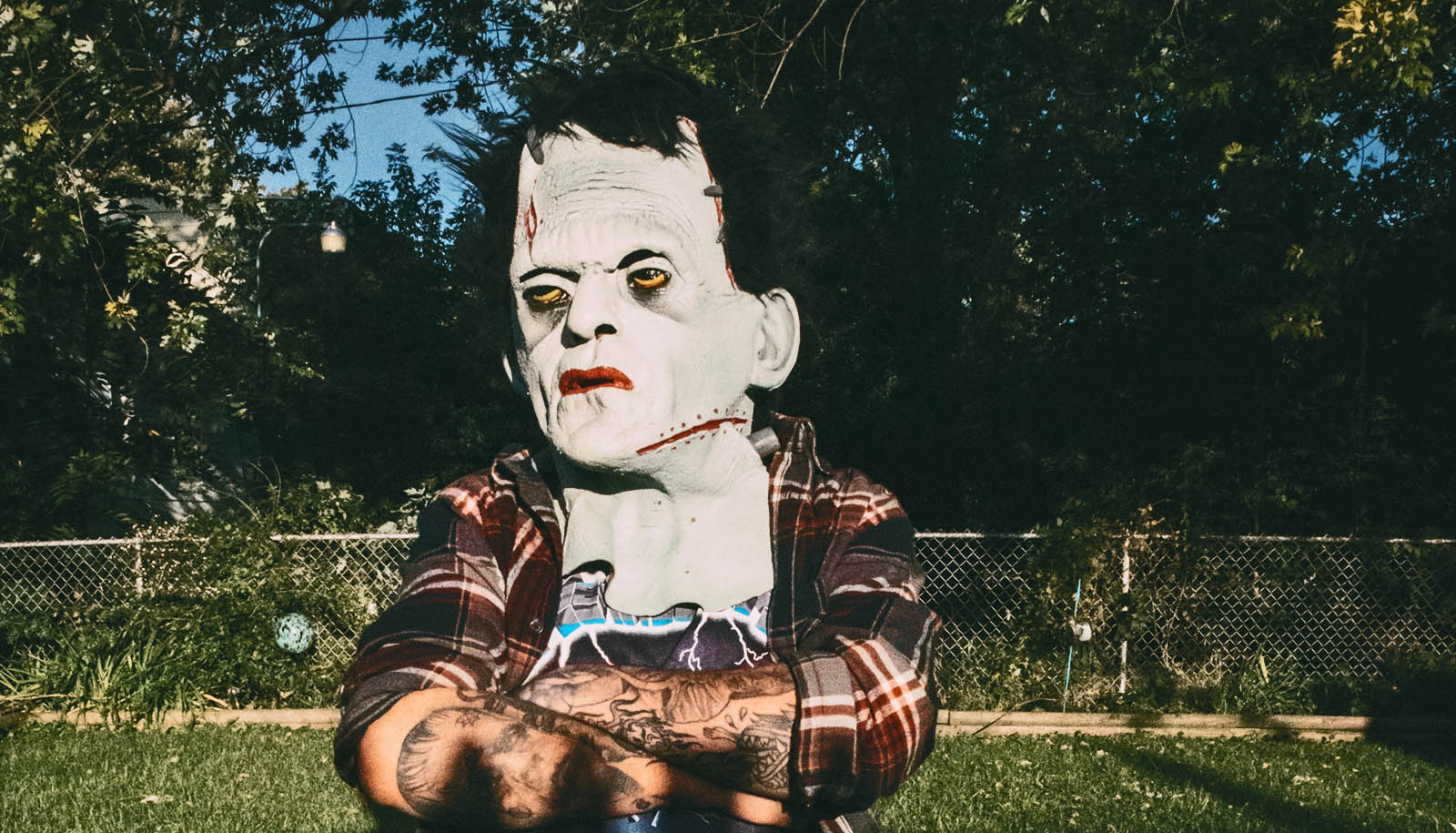
(Credit: Jessica Quinn/Flickr )
Why Rilke’s words still resonate (and appear in ‘Jojo Rabbit’)
An expert on Rainier Maria Rilke offers his take on why the Austrian poet and novelist's words resonate, particularly in films like the new "Jojo Rabbit."

The writings of Rainer Maria Rilke take a star turn in the the film Jojo Rabbit, which has been nominated for six Academy Awards, including Best Picture.
The best-selling Austrian poet and novelist’s poem “Go to the Limits of Your Longing” and the letter “Requiem for a Friend”—a tribute to painter Paula Modersohn-Becker—appear in Jojo Rabbit. The film is a biting and poignant satire, in which a 10-year-old boy wrestles with nationalism and anti-Semitism as he comes of age in the closing months of WWII in Hitler’s Germany.
It’s not the first time poetry has made it onto the big screen. Verses have been adapted as film titles (The White Cliffs of Dover, Casey at the Bat, Howl), served as their centerpiece (Dead Poets Society), or were the catalyst for a poignant scene or powerful narrative, as in Sophie’s Choice (borrowing from Emily Dickinson), Four Weddings and a Funeral (W.H. Auden), or Raisin in the Sun (Langston Hughes).
And this year, it’s Rilke’s (1875-1926) turn.
So why Rilke, and why now? Ulrich Baer, professor of comparative literature, German, and English at New York University, has some answers.
The author of The Rilke Alphabet (Fordham, 2014) and Letters on Life: The Wisdom of Rainer Maria Rilke (Modern Library, 2005; audio book recorded by Ethan Hawke), Baer recently edited and translated Rilke’s correspondence in a pair of volumes: Letters to a Young Poet (Insel Verlag, 2018) and The Dark Interval: Rilke’s Letters on Loss, Grief, and Transformation (Modern Library, 2018; audio book recorded by singer Rosanne Cash).
Here, he considers why Rilke resonates on the big screen—in Jojo Rabbit as well as in earlier films such has Only You (1994) and Igby Goes Down (2002)—and in the culture at large:
The post Why Rilke’s words still resonate (and appear in ‘Jojo Rabbit’) appeared first on Futurity.
Share this article:
This article uses material from the Futurity article, and is licenced under a CC BY-SA 4.0 International License. Images, videos and audio are available under their respective licenses.
Related Articles:
How horror movies turn fear into fun
Oct. 26, 2018 • futurityExperts: Supernatural frights offer meaning amid chaos
Oct. 28, 2022 • futurityLinks/images:
- https://www.fordhampress.com/9780823256297/the-rilke-alphabet/
- https://www.penguinrandomhouse.com/books/154357/letters-on-life-by-rainer-maria-rilke/
- https://www.nurgutebuecher.de/out/media/vlb_9783458194507_0.pdf
- https://www.penguinrandomhouse.com/books/565847/the-dark-interval-by-rainer-maria-rilke/
- https://www.futurity.org/jojo-rabbit-rilke-poetry-2263152-2/
- https://www.futurity.org


